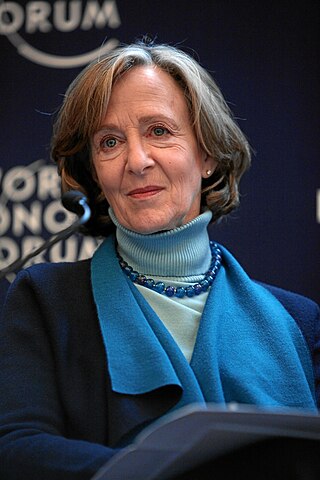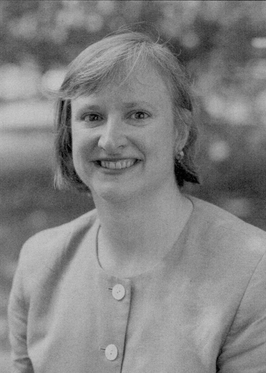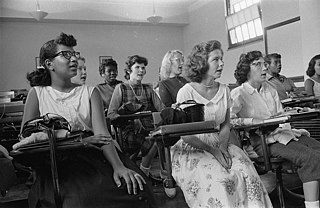Related Research Articles

Brandeis University is a private research university in Waltham, Massachusetts. It is located within the Boston City Metropolitan Area. Founded in 1948 as a non-sectarian, coeducational University, Brandeis was established on the site of the former Middlesex University. The university is named after Louis Brandeis, a former Justice of the U.S. Supreme Court.

Desegregation busing was a failed attempt to diversify the racial make-up of schools in the United States by sending students to school districts other than their own. While the 1954 U.S. Supreme Court landmark decision in Brown v. Board of Education declared racial segregation in public schools unconstitutional, many American schools continued to remain largely racially homogeneous. In an effort to address the ongoing de facto segregation in schools, the 1971 Supreme Court decision, Swann v. Charlotte-Mecklenburg Board of Education, ruled that the federal courts could use busing as a further integration tool to achieve racial balance.

Racial integration, or simply integration, includes desegregation, leveling barriers to association, creating equal opportunity regardless of race, and the development of a culture that draws on diverse traditions, rather than merely bringing a racial minority into the majority culture. Desegregation is largely a legal matter, integration largely a social one.

Susan Hockfield is an American neuroscientist who served as the 16th president of the Massachusetts Institute of Technology from 2004 to 2012.

Susan Catharine Eaton was an American political scientist and workers' rights activist. Eaton was an assistant professor of public policy at Harvard Kennedy School, who became a nursing home researcher at Harvard and workers' activist. She wrote about health care management, women's role in union leadership and work-family issues and gender equity in the workplace.

The Heller School for Social Policy and Management is one of the four graduate schools of Brandeis University in Waltham, Massachusetts.
The Metropolitan Council for Educational Opportunity, Inc. is the largest and second-longest continuously running voluntary school desegregation program in the country and a national model for the few other voluntary desegregation busing programs currently in existence. The program enrolls Boston resident students in Kindergarten through 12th grade into available seats in suburban public schools. Conceived by Boston activists Ruth Batson and Betty Johnson, and Brookline School Committee Chair Dr. Leon Trilling, METCO launched in 1966 as a coalition of seven school districts placing 220 students. The Massachusetts Racial Imbalance Act (RIA) of 1966, and amended in 1974, is the legal basis for voluntary interdistrict transfers for the purpose of desegregation, and funding is almost entirely provided by the Commonwealth of Massachusetts. Over the years, the academic and social outcomes of the program have been praised, while the increasing gap between cost and funding and the negative experiences of students of color have been the subject of criticism.
Second Redemption is a term that has been used regarding politics of the United States for the period following the election of 1968 characterized by more conservatism, and a retreat from governmental and judicial activism on issues of civil rights.
Gary Orfield is an American professor of education, law, political science and urban planning at the UCLA Graduate School of Education and Information Studies. He worked previously at the Harvard Graduate School of Education. A native Minnesotan, Orfield received his Ph.D. from the University of Chicago and travels annually to Latin America.
Robert Francis Xavier Sillerman was an American businessman and media entrepreneur. Sillerman was the owner of a range of television and radio stations during the 1970s and 1980s, In 1993 he formed SFX Broadcasting, and then built SFX Entertainment—a concert and stage performance promoter that was sold to Clear Channel in 2000 for $4.4 billion. He refounded SFX Entertainment in 2012 as a promoter of electronic music festivals; that company is now known as LiveStyle. He is also the founder of Viggle and the namesake of The Sillerman Center for the Advancement of Philanthropy at Brandeis University. Once on the Forbes 400 list, he also briefly owned the WLAF's New York/New Jersey Knights.
Ruth Marion Batson was an American civil rights activist and outspoken advocate of equal education. She spoke out about the desegregation of Boston Public Schools. She served as Chairman of the Public Education Sub-Committee of the National Association for the Advancement of Colored People (NAACP) in 1953. Later, she served as the executive director of the Metropolitan Council for Educational Opportunity (METCO).
The Mansfield school desegregation incident is a 1956 event in the Civil Rights Movement in Mansfield, Texas, a suburb of the Dallas–Fort Worth metroplex.
Richard D. Kahlenberg is an American writer who has written about a variety of education, labor and housing issues.
The desegregation of Boston public schools (1974–1988) was a period in which the Boston Public Schools were under court control to desegregate through a system of busing students. The call for desegregation and the first years of its implementation led to a series of racial protests and riots that brought national attention, particularly from 1974 to 1976. In response to the Massachusetts legislature's enactment of the 1965 Racial Imbalance Act, which ordered the state's public schools to desegregate, W. Arthur Garrity Jr. of the United States District Court for the District of Massachusetts laid out a plan for compulsory busing of students between predominantly white and black areas of the city. The hard control of the desegregation plan lasted for over a decade. It influenced Boston politics and contributed to demographic shifts of Boston's school-age population, leading to a decline of public-school enrollment and white flight to the suburbs. Full control of the desegregation plan was transferred to the Boston School Committee in 1988; in 2013 the busing system was replaced by one with dramatically reduced busing.

School segregation in the United States was the segregation of students based on their ethnicity. While not prohibited from having schools, various minorities were barred from most schools, schools for whites. Segregation was enforced by formal legal systems in U.S. states primarily in the Southern United States, although elsewhere segregation could be informal or customary. Segregation laws were dismantled in 1954 by the U.S. Supreme Court because of the successes being attained during the Civil Rights Movement. Segregation continued longstanding exclusionary policies in much of the Southern United States after the Civil War. Jim Crow laws codified segregation. These laws were influenced by the history of slavery and discrimination in the US. Secondary schools for African Americans in the South were called training schools instead of high schools in order to appease racist whites and focused on vocational education. School integration in the United States took place at different times in different areas and often met resistance. After the ruling of Brown v. Board of Education, which banned segregated school laws, school segregation took de facto form. School segregation declined rapidly during the late 1960s and early 1970s as the government became strict on schools' plans to combat segregation more effectively as a result of Green v. County School Board of New Kent County. Voluntary segregation by income appears to have increased since 1990. Racial segregation has either increased or stayed constant since 1990, depending on which definition of segregation is used. In general, definitions based on the amount of interaction between black and white students show increased racial segregation, while definitions based on the proportion of black and white students in different schools show racial segregation remaining approximately constant.

In the United States, school integration is the process of ending race-based segregation within American public and private schools. Racial segregation in schools existed throughout most of American history and remains an issue in contemporary education. During the Civil Rights Movement school integration became a priority, but since then de facto segregation has again become prevalent.
Kecia Ali is an American scholar of Islam who focuses on the study of Islamic jurisprudence, ethics, women and gender, and biography. She is currently a professor of religion at Boston University. She previously worked with Brandeis University's Feminist Sexual Ethics Project, presided over the Society for the Study of Muslim Ethics and was a research associate and postdoctoral fellow at Brandeis University and Harvard Divinity School.
Dick Lehr is an American author, journalist and a professor of journalism at Boston University. He is known for co-authoring The New York Times bestseller and Edgar Award winner Black Mass: Whitey Bulger, the FBI and a Devil's Deal, and its sequel, Whitey: The Life of America's Most Notorious Mob Boss with fellow journalist Gerard O'Neill.
Jennifer Lucy Hochschild is an American political scientist. She serves as the Henry LaBarre Jayne Professor of Government, Professor of African and African American Studies and Harvard College Professor at Harvard University. She is also a member of the faculty at Harvard's Graduate School of Education and John F. Kennedy School of Government.
Jean Emily Fairfax was an American educator, civil rights worker, community organizer, and philanthropist whose efforts have focused on achieving equity in education, especially for poor African Americans. She served as Director of Community Services of the NAACP from 1965 to 1984.
References
- ↑ "Error | Brandeis University".
- ↑ "Harvard's Susan Eaton selected as new director of the Sillerman Center for the Advancement of Philanthropy | She has two sons, Will and Eli Kramer. The Heller School at Brandeis University". heller.brandeis.edu. Retrieved 9 October 2016.
- ↑ "A letter from 106 Methodist pastors on Initiative 42". The Clarion Ledger. Retrieved 9 October 2016.
- ↑ "Stories Show We Are One Nation Indivisible | Teaching Tolerance - Diversity, Equity and Justice". Tolerance.org. Retrieved 9 October 2016.
- ↑ "Guess who benefits most from racially diverse schools". Mother Jones Magazine. Retrieved 9 October 2016.
- ↑ "Susan Eaton". The Nation. 2 April 2010. Retrieved 9 October 2016.
- ↑ "How do we do ELL well?". Boston Globe. Retrieved 9 October 2016.
- ↑ "Nominated for the 2016-17 academic yearReading". Washington State University. Retrieved 9 October 2016.
- ↑ "Dismantling Desegr -Op/58". Publishers Weekly. September 1996. Retrieved 9 October 2016.
- ↑ "The Other Boston Busing Story: Whats Won and Lost Across the Boundary Line". Publishers Weekly. March 2001. Retrieved 9 October 2016.
- ↑ "The Children in Room E-4". Publishers Weekly. January 2007. Retrieved 9 October 2016.
- ↑ "THE CHILDREN IN ROOM E4 by Susan Eaton". Kirkus Reviews. Retrieved 9 October 2016.
- ↑ "Integration Nation: Immigrants, Refugees, and America at Its Best". Publishers Weekly. January 2016. Retrieved 9 October 2016.